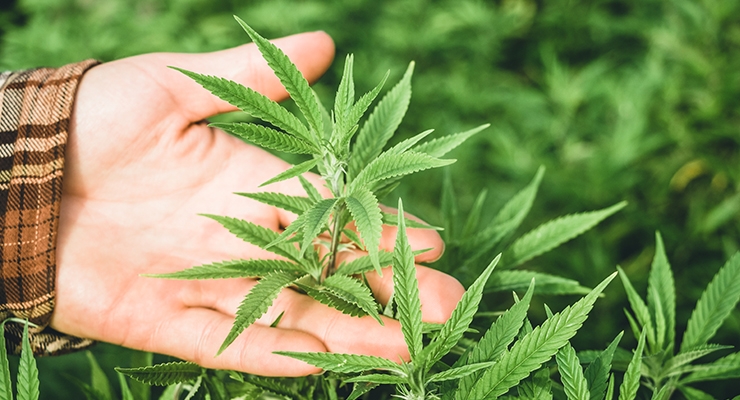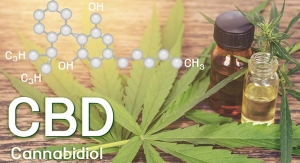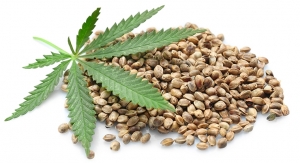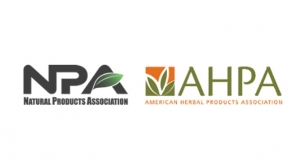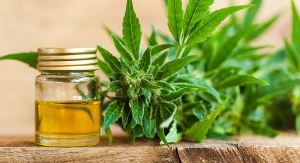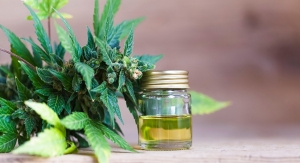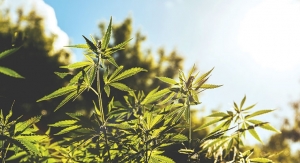By Lisa Olivo, Associate Editor01.14.19
On Dec. 20, 2018 President Donald J. Trump signed the 2018 “Agriculture Improvement Act” (more commonly referred to as the Farm Bill) into law, and with it came a huge victory for purveyors of hemp and hemp-derived products. With passage of the bill, hemp was declassified as a controlled substance under the Controlled Substances Act, meaning that under federal law the U.S. Food and Drug Administration (FDA) no longer views hemp as an illegal substance, thus separating it from marijuana.
Hemp cultivation will now be supervised by the Department of Agriculture, opening it up to eligibility for U.S. Department of Agriculture (USDA) research grants, federal crop insurance, participation in the National Organic Program (NOP), as well as access to banking and other financial tools supporting the production of agricultural commodities.
“The good news is that the Drug Enforcement Agency [DEA] is not out of the picture for any governance role for hemp,” said Jane Wilson, American Herbal Products Association (AHPA) director of program development and liaison to the AHPA Cannabis Committee in a Dec. 19 webinar. With the new bill, USDA will take the helm as the primary regulatory authority for domestic production of hemp, along with state and tribal governments, she noted.
Despite these seismic shifts, the 2018 Farm Bill does not change any of the regulatory authority of FDA over hemp-derived products.
In his statement on the passage of the Farm Bill, FDA Commissioner Scott Gottlieb, MD, stressed that “Congress explicitly preserved the agency’s current authority to regulate products containing cannabis or cannabis-derived compounds under the Federal Food, Drug, and Cosmetic Act (FD&C Act) and section 351 of the Public Health Service Act.” In doing so, he said, “Congress recognized the agency’s important public health role with respect to all the products it regulates. This allows the FDA to continue enforcing the law to protect patients and the public while also providing potential regulatory pathways for products containing cannabis and cannabis-derived compounds.”
Defining Hemp
The Hemp Farming Act of 2018 (S. 2667) was attached to the 2018 Farm Bill in a bipartisan effort. Senate Majority Leader Mitch McConnel (R-KY) took particular interest in advancing the bill, ensuring the final Conference Committee included provisions for hemp.
The hemp provisions of the 2018 Farm Bill amended the Agricultural Marketing Act of 1946 (also called the AMA), establishing a new definition of hemp. Hemp is now defined as “the plant Cannabis sativa L. and any part of that plant, including the seeds thereof and all derivatives, extracts, cannabinoids, isomers, acids, salts, and salts of isomers, whether growing or not, with a delta-9 tetrahydrocannabinol [THC] concentration of not more than 0.3% on a dry weight basis.”
“It’s important to note that the new definition is inclusive of the whole plant,” noted Ms. Wilson, “as well as all derivatives of the plant, including cannabinoids which may come from the Cannabis sativa.”
CBD Caution
Despite the new regulatory status for hemp, under the FD&C Act, hemp and cannabidiol (CBD) are two separate entities.
“Hemp is a botanical, or any kind of derivative or extract that’s identified as coming from hemp. Although these products may contain CBD, they’re not specifically labeled for CBD content.” On the other hand, “CBD products or products that are labeled for specifically containing CBD are a separate article,” noted Ms. Wilson.
Hemp—the herb itself or any concentrate, constituent or extract—is now clearly eligible for use in dietary supplements according to the FD&C Act, so long as the level of THC present does not exceed 0.3%.
“Unfortunately, the passage of the Farm Bill doesn’t do much to clarify the FDA regulatory status of CBD containing dietary supplements,” lamented Ms. Wilson.
FDA’s public position is that products containing THC or CBD cannot be sold as a dietary supplement. According to the agency, “FDA has concluded that THC and CBD products are excluded from the dietary supplement definition under sections 201(ff)(3)(B)(i) and (ii) of the FD&C Act, respectively. Under those provisions, if a substance (such as THC or CBD) is an active ingredient in a drug product that has been approved under 21 U.S.C. § 355 (section 505 of the FD&C Act), or has been authorized for investigation as a new drug for which substantial clinical investigations have been instituted and for which the existence of such investigations has been made public, then products containing that substance are outside the definition of a dietary supplement.”
FDA has pointed to provisions of the Dietary Supplement Health and Education Act (DSHEA) in support of its position that CBD cannot be used in dietary supplements, in addition to the authorization of an investigational new drug application for the research from GW Pharmaceuticals for its Epidiolex drug product, noted Ms. Wilson. However, she observed that FDA hasn’t taken strong enforcement action against CBD product marketers, unless they were making unlawful claims.
In Dr. Gottlieb’s comments on the passage of the Farm Bill, he underscored the problem of companies making such unlawful claims, noting that FDA has issued warning letters to companies illegally marketing CBD products.
He said FDA “continue[s] to be concerned at the number of drug claims being made about products not approved by the FDA that claim to contain CBD or other cannabis-derived compounds. Among other things, the FDA requires a cannabis product (hemp-derived or otherwise) that is marketed with a claim of therapeutic benefit, or with any other disease claim, to be approved by the FDA for its intended use before it may be introduced into interstate commerce.... Cannabis and cannabis-derived products claiming in their marketing and promotional materials that they’re intended for use in the diagnosis, cure, mitigation, treatment, or prevention of diseases (such as cancer, Alzheimer’s disease, psychiatric disorders and diabetes) are considered new drugs or new animal drugs and must go through the FDA drug approval process for human or animal use before they are marketed in the U.S. Selling unapproved products with unsubstantiated therapeutic claims is not only a violation of the law, but also can put patients at risk, as these products have not been proven to be safe or effective.”
Dr. Gottlieb stressed that CBD “regardless of whether the substances are hemp-derived” are not approved for use in food or dietary supplements, and that FDA will take action against companies illegally selling cannabis and cannabis-derived products, or those making unsubstantiated health claims.
Industry Response
Discussing Dr. Gottlieb’s statements on hemp’s new standing as a result of the Farm Bill, AHPA President Michael McGuffin said he sees this “as an indication that FDA shares our desire for hemp and CBD products to be properly regulated under federal law, and now recognizes its statutory authority to address the agency’s view of the prior-drug status of some Cannabis compounds through rulemaking.”
Mr. McGuffin pointed to Dr. Gottlieb’s emphasis on legal requirements for food additives and new dietary ingredients (NDIs) “a clear signal of FDA’s thinking, and we should not be surprised if any forthcoming FDA action focuses on compliance with the law’s provisions for NDI notifications for supplement ingredients, and for hemp ingredients used in foods to meet the provisions to establish these as Generally Recognized As Safe (GRAS) under the law.”
Commissioner Gottlieb’s statement also announced that FDA intends to convene a public meeting in the near future to discuss products that contain hemp-derived ingredients, including food and supplement products.
“AHPA has been engaged in issues related to the safe use and responsible commerce of lawfully marketed products derived from Cannabis since 2010 and we will continue to actively participate in any and all relevant FDA meetings and rulemaking activities,” noted AHPA’s Ms. Wilson.
Meanwhile, Steve Mister, president & CEO, for the Council For Responsible Nutrition (CRN) applauded the inclusion of the Hemp Farming Act in the Farm Bill and providing “a framework for the lawful cultivation and marketing of hemp and its constituents, including cannabidiol (CBD).”
He commented, “This provision removes one of the barriers to the lawful marketing of CBD in a range of dietary supplement, food, and personal care products and will allow for greater research and understanding of this substance as a legitimate agricultural commodity.”
Looking ahead, Mr. Mister suggested the industry must now work with FDA to discuss legal concerns surrounding CBD in the dietary supplement and food and beverage categories. He stressed that “in anticipation of increased market interest in CBD, CRN reminds industry that the Farm Bill has no effect on FDA’s position that CBD is excluded from use in food and dietary supplements, citing a definitional matter that prohibits ingredients from being marketed in food or supplements if they were previously studied in clinical trials for pharmaceutical purposes. CRN looks forward to engaging with FDA to address those concerns.”
GRAS Approvals
On Dec. 20, FDA granted GRAS notices for hemp seed-derived food ingredients, which were submitted by Fresh Hemp Foods, Ltd. The company submitted hulled hemp seed, hemp seed protein powder, and hemp seed oil for review and the agency had no questions about the company’s conclusion that the ingredients were safe under their intended conditions of use.
The GRAS conclusions can apply to ingredients from other companies, FDA noted, “if they are manufactured in a way that is consistent with the notices and they meet the listed specifications.” Intended uses for these ingredients include “adding them as source of protein, carbohydrates, oil, and other nutrients to beverages (juices, smoothies, protein drinks, plant-based alternatives to dairy products), soups, dips, spreads, sauces, dressings, plant-based alternatives to meat products, desserts, baked goods, cereals, snacks and nutrition bars.”
Hemp cultivation will now be supervised by the Department of Agriculture, opening it up to eligibility for U.S. Department of Agriculture (USDA) research grants, federal crop insurance, participation in the National Organic Program (NOP), as well as access to banking and other financial tools supporting the production of agricultural commodities.
“The good news is that the Drug Enforcement Agency [DEA] is not out of the picture for any governance role for hemp,” said Jane Wilson, American Herbal Products Association (AHPA) director of program development and liaison to the AHPA Cannabis Committee in a Dec. 19 webinar. With the new bill, USDA will take the helm as the primary regulatory authority for domestic production of hemp, along with state and tribal governments, she noted.
Despite these seismic shifts, the 2018 Farm Bill does not change any of the regulatory authority of FDA over hemp-derived products.
In his statement on the passage of the Farm Bill, FDA Commissioner Scott Gottlieb, MD, stressed that “Congress explicitly preserved the agency’s current authority to regulate products containing cannabis or cannabis-derived compounds under the Federal Food, Drug, and Cosmetic Act (FD&C Act) and section 351 of the Public Health Service Act.” In doing so, he said, “Congress recognized the agency’s important public health role with respect to all the products it regulates. This allows the FDA to continue enforcing the law to protect patients and the public while also providing potential regulatory pathways for products containing cannabis and cannabis-derived compounds.”
Defining Hemp
The Hemp Farming Act of 2018 (S. 2667) was attached to the 2018 Farm Bill in a bipartisan effort. Senate Majority Leader Mitch McConnel (R-KY) took particular interest in advancing the bill, ensuring the final Conference Committee included provisions for hemp.
The hemp provisions of the 2018 Farm Bill amended the Agricultural Marketing Act of 1946 (also called the AMA), establishing a new definition of hemp. Hemp is now defined as “the plant Cannabis sativa L. and any part of that plant, including the seeds thereof and all derivatives, extracts, cannabinoids, isomers, acids, salts, and salts of isomers, whether growing or not, with a delta-9 tetrahydrocannabinol [THC] concentration of not more than 0.3% on a dry weight basis.”
“It’s important to note that the new definition is inclusive of the whole plant,” noted Ms. Wilson, “as well as all derivatives of the plant, including cannabinoids which may come from the Cannabis sativa.”
CBD Caution
Despite the new regulatory status for hemp, under the FD&C Act, hemp and cannabidiol (CBD) are two separate entities.
“Hemp is a botanical, or any kind of derivative or extract that’s identified as coming from hemp. Although these products may contain CBD, they’re not specifically labeled for CBD content.” On the other hand, “CBD products or products that are labeled for specifically containing CBD are a separate article,” noted Ms. Wilson.
Hemp—the herb itself or any concentrate, constituent or extract—is now clearly eligible for use in dietary supplements according to the FD&C Act, so long as the level of THC present does not exceed 0.3%.
“Unfortunately, the passage of the Farm Bill doesn’t do much to clarify the FDA regulatory status of CBD containing dietary supplements,” lamented Ms. Wilson.
FDA’s public position is that products containing THC or CBD cannot be sold as a dietary supplement. According to the agency, “FDA has concluded that THC and CBD products are excluded from the dietary supplement definition under sections 201(ff)(3)(B)(i) and (ii) of the FD&C Act, respectively. Under those provisions, if a substance (such as THC or CBD) is an active ingredient in a drug product that has been approved under 21 U.S.C. § 355 (section 505 of the FD&C Act), or has been authorized for investigation as a new drug for which substantial clinical investigations have been instituted and for which the existence of such investigations has been made public, then products containing that substance are outside the definition of a dietary supplement.”
FDA has pointed to provisions of the Dietary Supplement Health and Education Act (DSHEA) in support of its position that CBD cannot be used in dietary supplements, in addition to the authorization of an investigational new drug application for the research from GW Pharmaceuticals for its Epidiolex drug product, noted Ms. Wilson. However, she observed that FDA hasn’t taken strong enforcement action against CBD product marketers, unless they were making unlawful claims.
In Dr. Gottlieb’s comments on the passage of the Farm Bill, he underscored the problem of companies making such unlawful claims, noting that FDA has issued warning letters to companies illegally marketing CBD products.
He said FDA “continue[s] to be concerned at the number of drug claims being made about products not approved by the FDA that claim to contain CBD or other cannabis-derived compounds. Among other things, the FDA requires a cannabis product (hemp-derived or otherwise) that is marketed with a claim of therapeutic benefit, or with any other disease claim, to be approved by the FDA for its intended use before it may be introduced into interstate commerce.... Cannabis and cannabis-derived products claiming in their marketing and promotional materials that they’re intended for use in the diagnosis, cure, mitigation, treatment, or prevention of diseases (such as cancer, Alzheimer’s disease, psychiatric disorders and diabetes) are considered new drugs or new animal drugs and must go through the FDA drug approval process for human or animal use before they are marketed in the U.S. Selling unapproved products with unsubstantiated therapeutic claims is not only a violation of the law, but also can put patients at risk, as these products have not been proven to be safe or effective.”
Dr. Gottlieb stressed that CBD “regardless of whether the substances are hemp-derived” are not approved for use in food or dietary supplements, and that FDA will take action against companies illegally selling cannabis and cannabis-derived products, or those making unsubstantiated health claims.
Industry Response
Discussing Dr. Gottlieb’s statements on hemp’s new standing as a result of the Farm Bill, AHPA President Michael McGuffin said he sees this “as an indication that FDA shares our desire for hemp and CBD products to be properly regulated under federal law, and now recognizes its statutory authority to address the agency’s view of the prior-drug status of some Cannabis compounds through rulemaking.”
Mr. McGuffin pointed to Dr. Gottlieb’s emphasis on legal requirements for food additives and new dietary ingredients (NDIs) “a clear signal of FDA’s thinking, and we should not be surprised if any forthcoming FDA action focuses on compliance with the law’s provisions for NDI notifications for supplement ingredients, and for hemp ingredients used in foods to meet the provisions to establish these as Generally Recognized As Safe (GRAS) under the law.”
Commissioner Gottlieb’s statement also announced that FDA intends to convene a public meeting in the near future to discuss products that contain hemp-derived ingredients, including food and supplement products.
“AHPA has been engaged in issues related to the safe use and responsible commerce of lawfully marketed products derived from Cannabis since 2010 and we will continue to actively participate in any and all relevant FDA meetings and rulemaking activities,” noted AHPA’s Ms. Wilson.
Meanwhile, Steve Mister, president & CEO, for the Council For Responsible Nutrition (CRN) applauded the inclusion of the Hemp Farming Act in the Farm Bill and providing “a framework for the lawful cultivation and marketing of hemp and its constituents, including cannabidiol (CBD).”
He commented, “This provision removes one of the barriers to the lawful marketing of CBD in a range of dietary supplement, food, and personal care products and will allow for greater research and understanding of this substance as a legitimate agricultural commodity.”
Looking ahead, Mr. Mister suggested the industry must now work with FDA to discuss legal concerns surrounding CBD in the dietary supplement and food and beverage categories. He stressed that “in anticipation of increased market interest in CBD, CRN reminds industry that the Farm Bill has no effect on FDA’s position that CBD is excluded from use in food and dietary supplements, citing a definitional matter that prohibits ingredients from being marketed in food or supplements if they were previously studied in clinical trials for pharmaceutical purposes. CRN looks forward to engaging with FDA to address those concerns.”
GRAS Approvals
On Dec. 20, FDA granted GRAS notices for hemp seed-derived food ingredients, which were submitted by Fresh Hemp Foods, Ltd. The company submitted hulled hemp seed, hemp seed protein powder, and hemp seed oil for review and the agency had no questions about the company’s conclusion that the ingredients were safe under their intended conditions of use.
The GRAS conclusions can apply to ingredients from other companies, FDA noted, “if they are manufactured in a way that is consistent with the notices and they meet the listed specifications.” Intended uses for these ingredients include “adding them as source of protein, carbohydrates, oil, and other nutrients to beverages (juices, smoothies, protein drinks, plant-based alternatives to dairy products), soups, dips, spreads, sauces, dressings, plant-based alternatives to meat products, desserts, baked goods, cereals, snacks and nutrition bars.”

